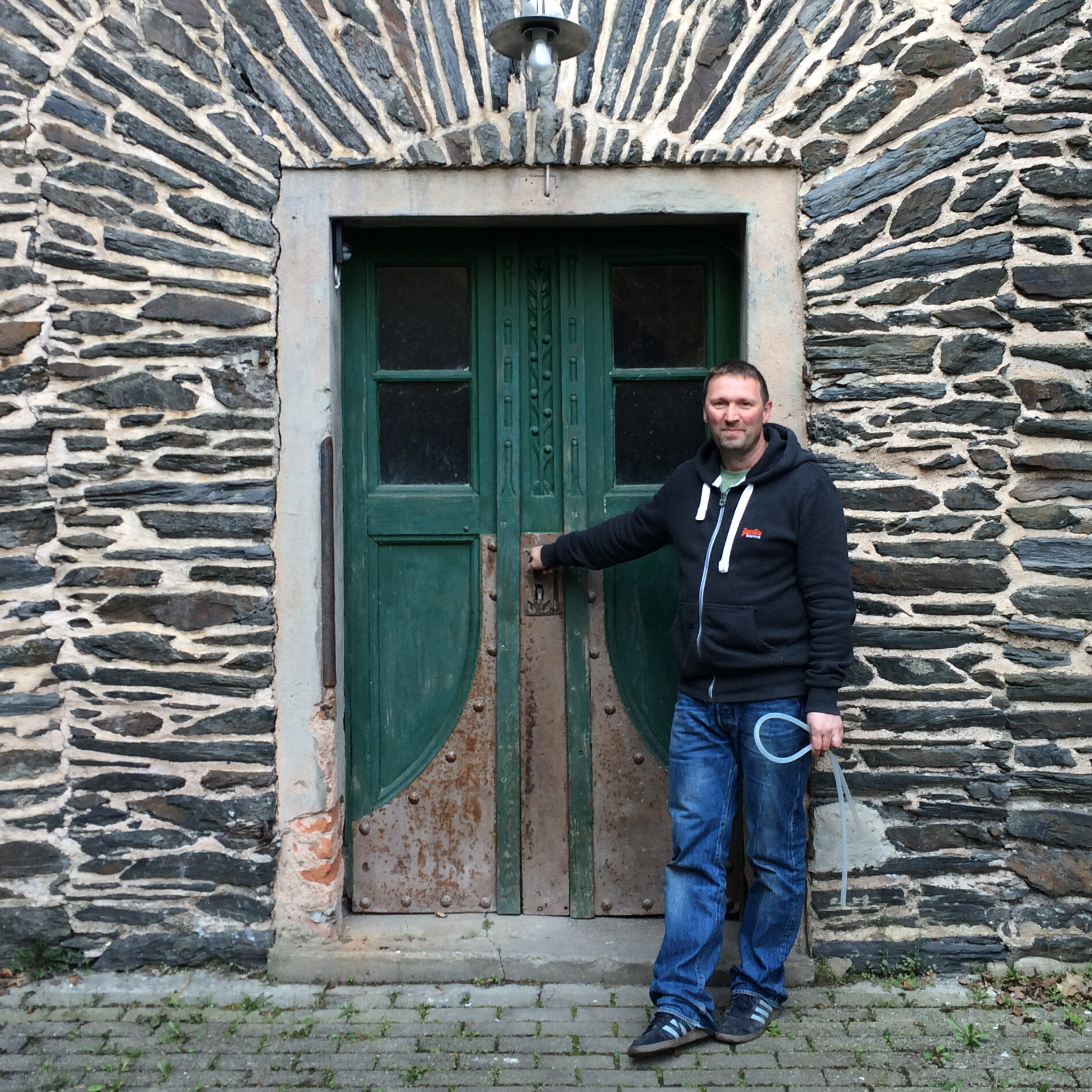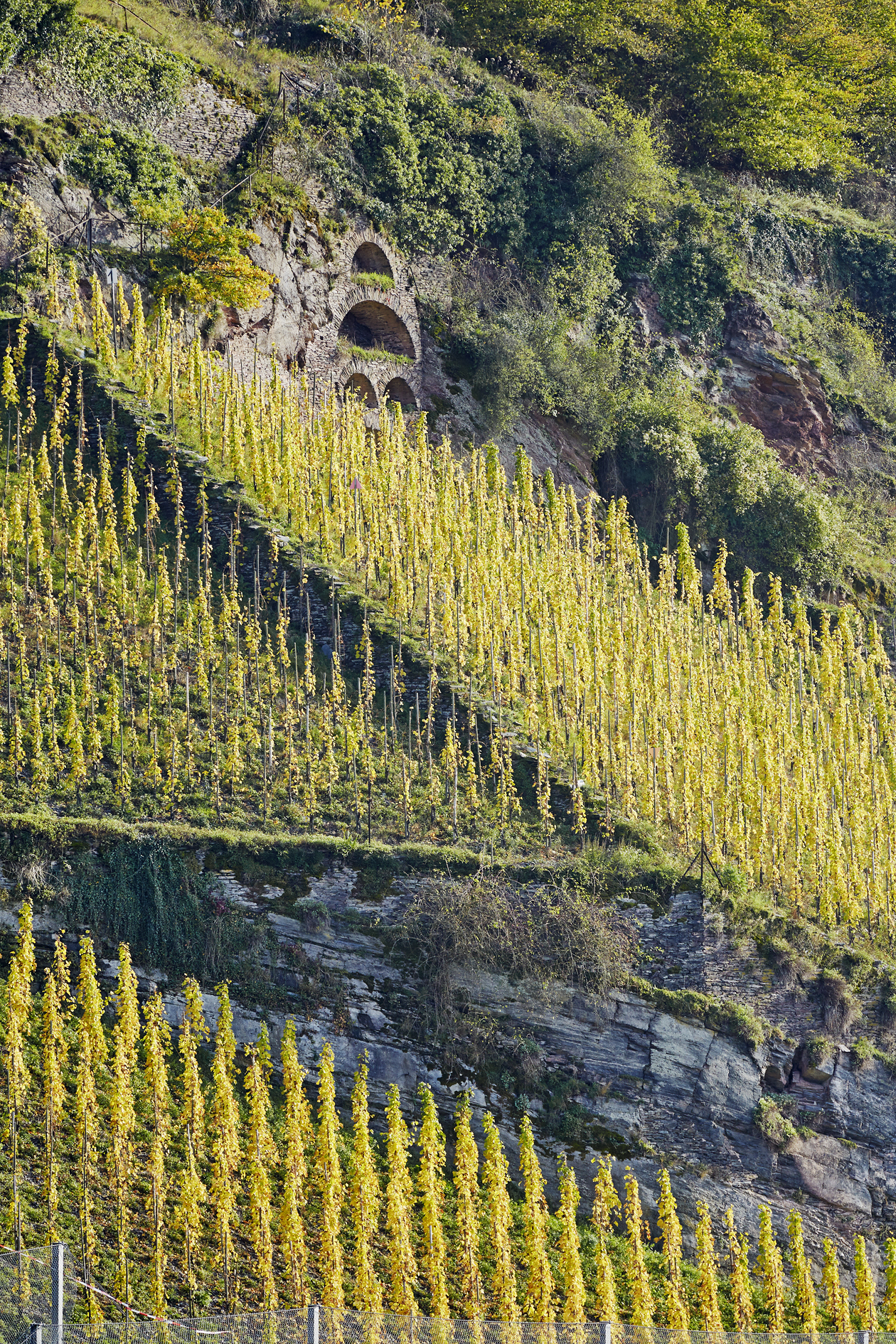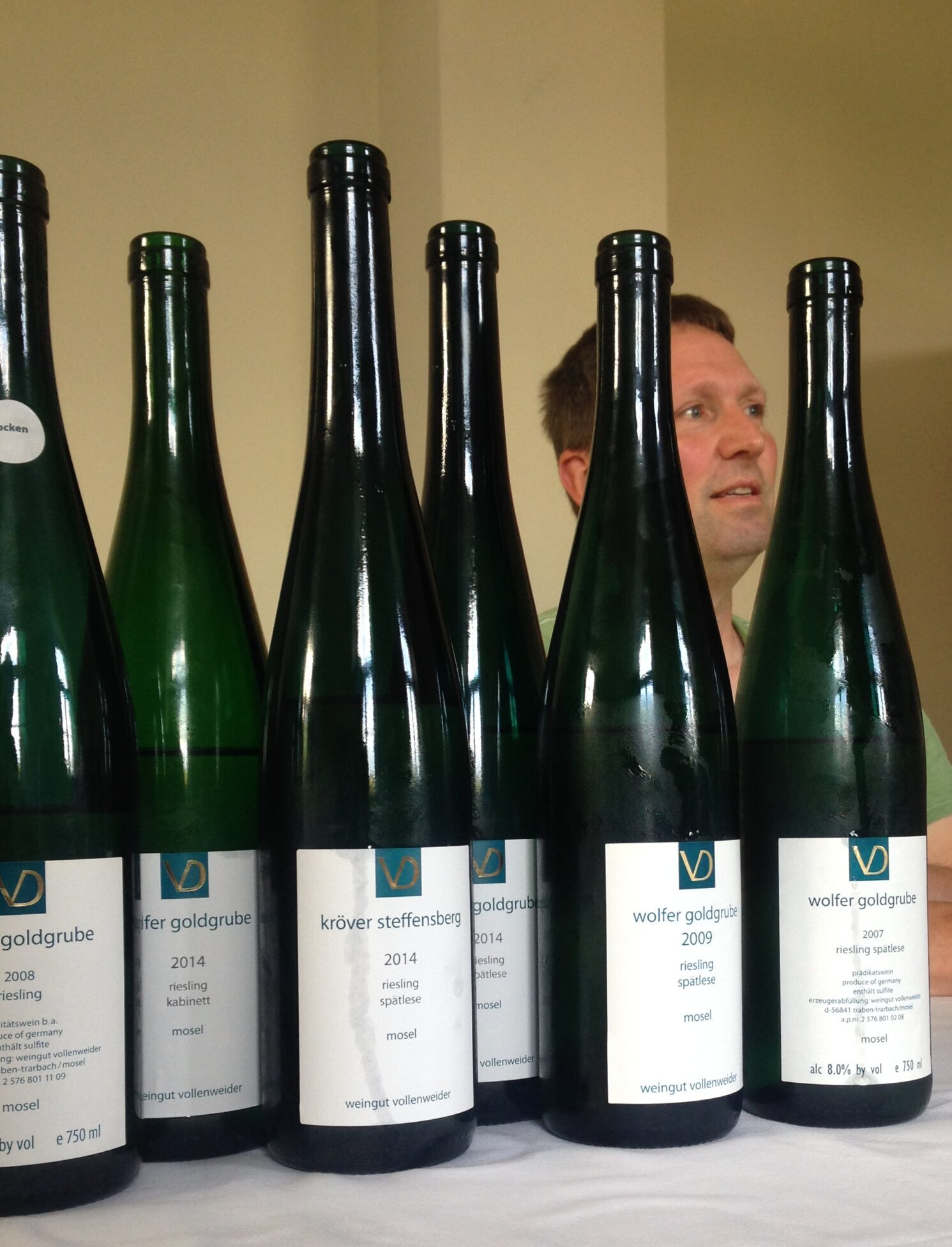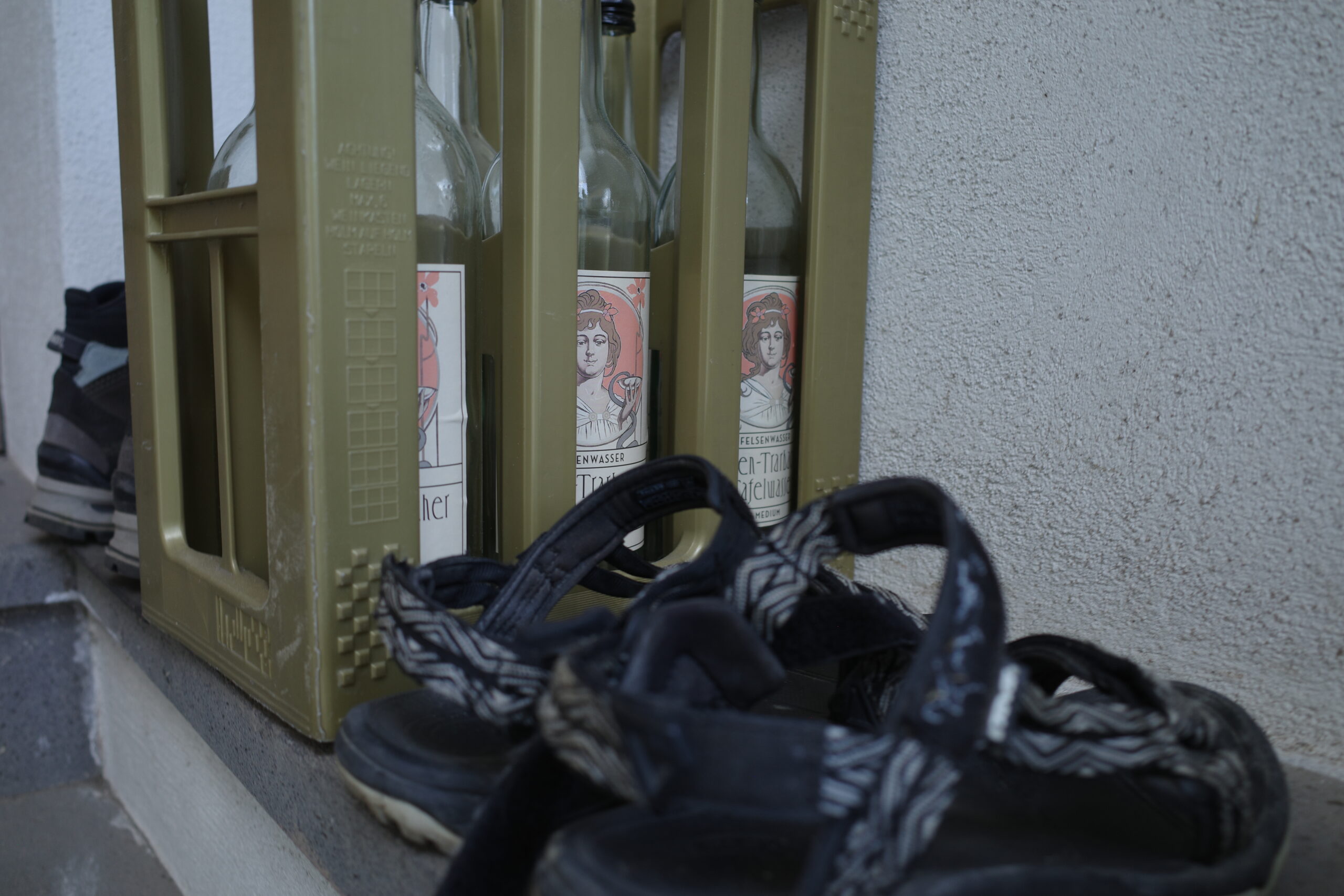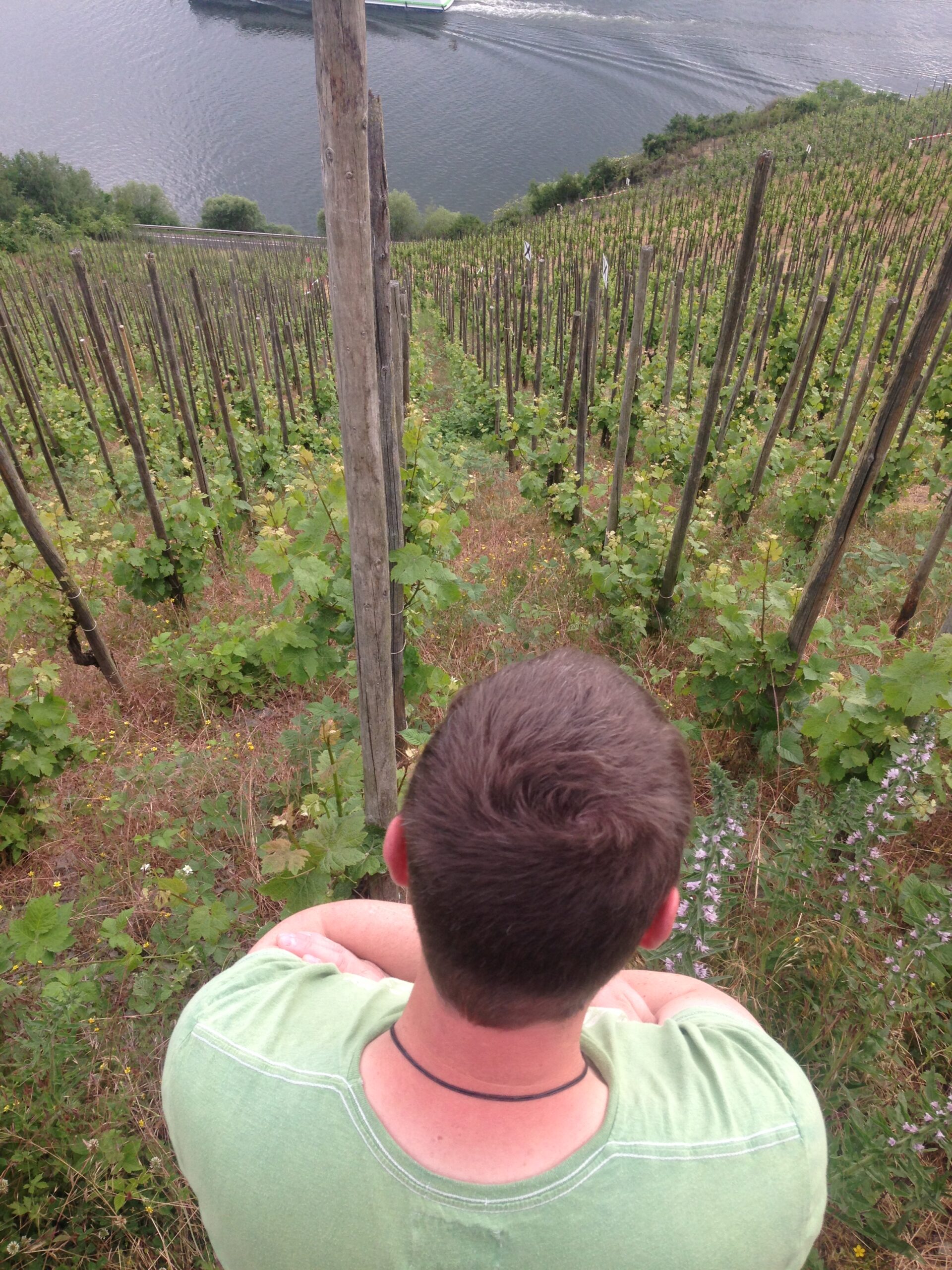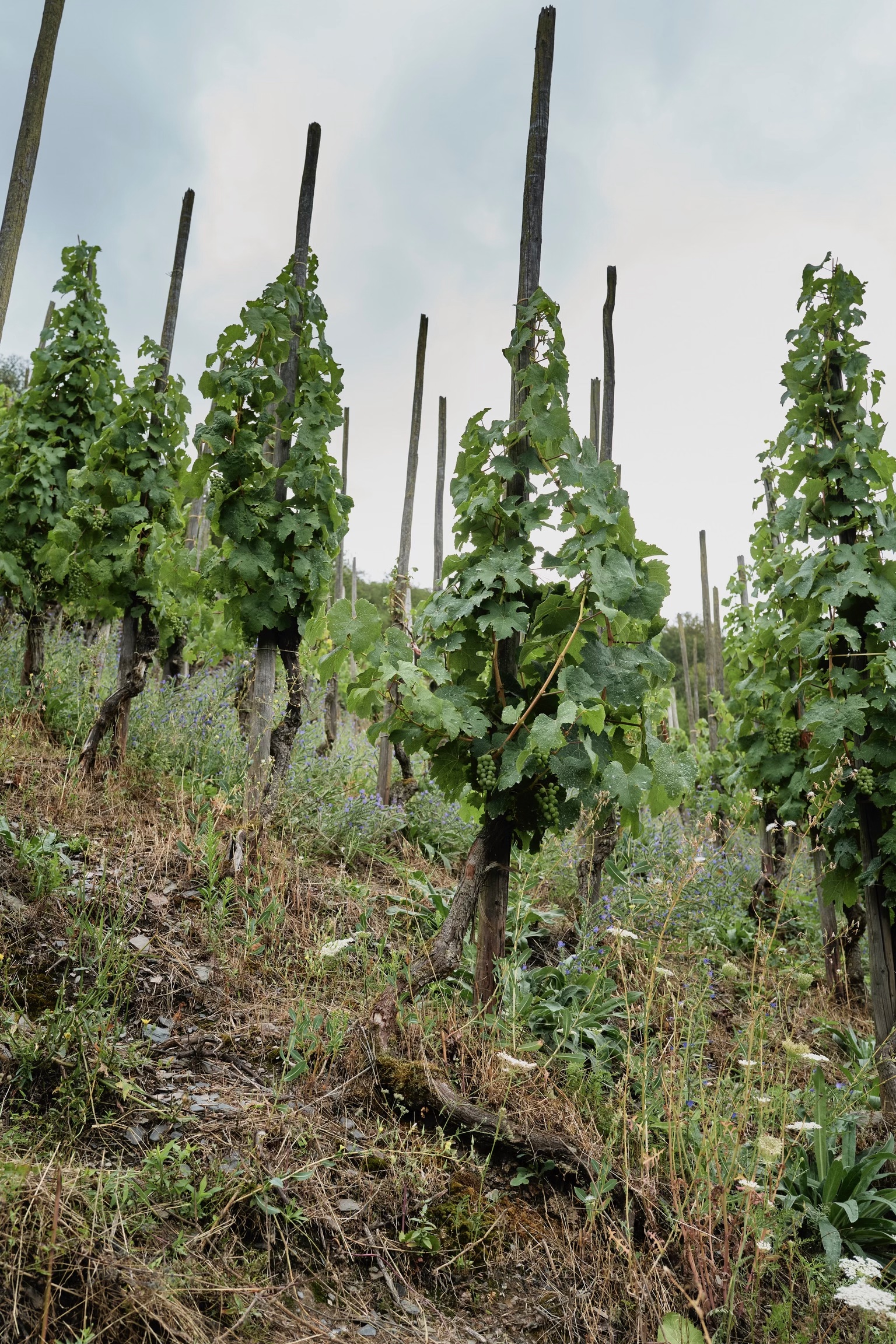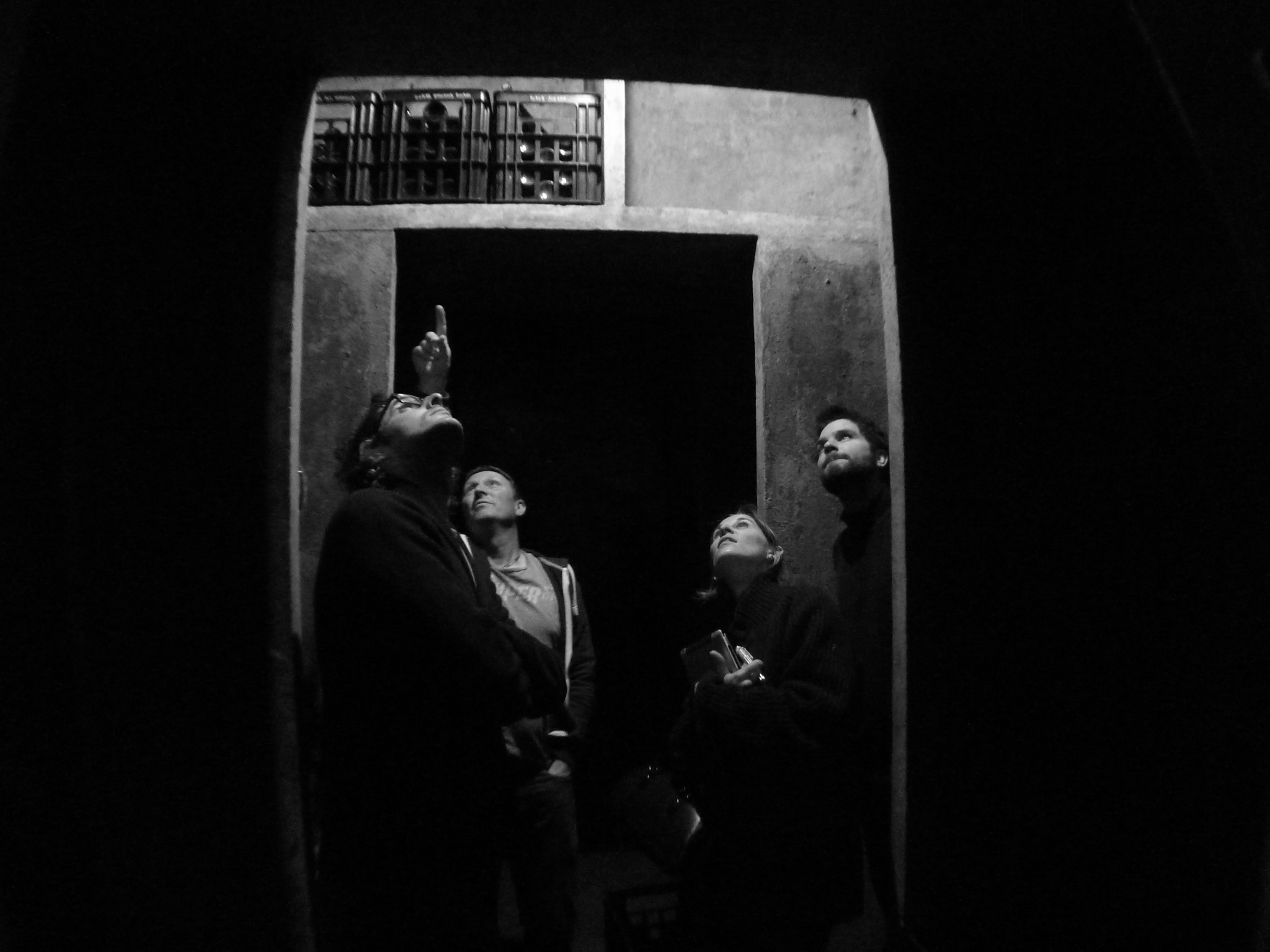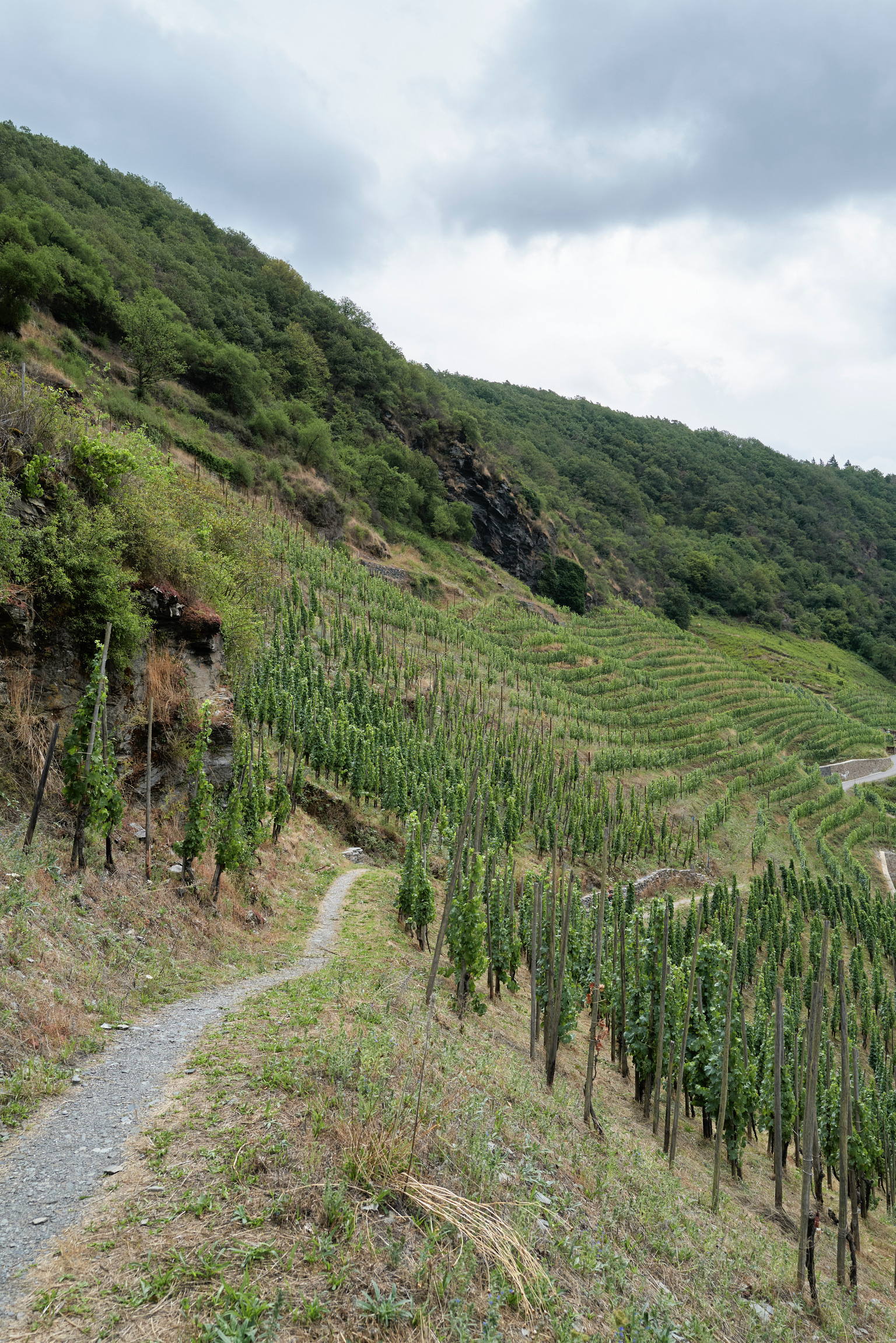On Friday, July 22nd, 2022, our friend, the Mosel grower Daniel Vollenweider, passed away.
A tribute to this immutably strong man, a giant in Mosel and beyond, can be found here.
Daniel was diagnosed with late-stage prostate cancer in July of 2019. While most of Daniel’s close friends and colleagues knew that he was sick, it never felt like something he wanted discussed. He was an intensely private person and he wanted neither sympathy nor pity.
He wanted to work in his vineyards; he wanted people to taste the wines without distraction.
Daniel did, however, know that he would need help. Working around six hectares of steep vineyards alone through the rigors of chemotherapy would just not be possible. So he made the young Moritz Hoffman, pictured below to the left of Daniel, a partner of the estate nearly right away. From the very first time I spoke with Daniel after the diagnosis it was already obvious that he found a lot of comfort in the fact that the estate would continue – that it would have a future.
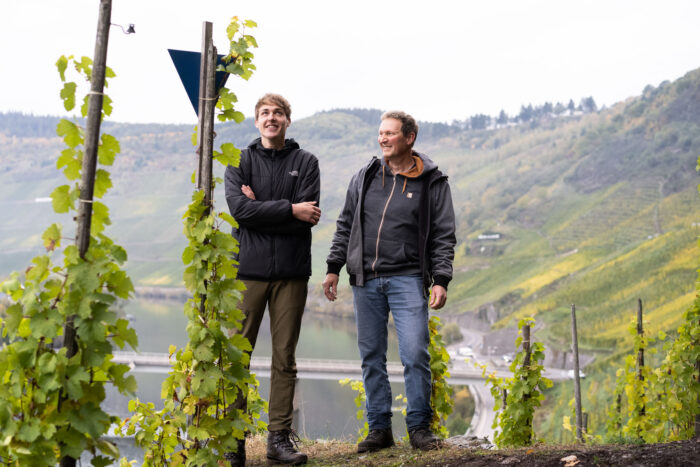 Everyone – from Daniel and Moritz to myself to close friends Konstantin and Alexandra (Weiser-Künstler) – thought that Daniel had more time. Though we all knew he was very sick, he was also an incredibly strong person. I saw him in August of 2021 and in March of 2022; he was skinnier of course and in March maybe he seemed more tired, perhaps a bit frail. But we texted with regularity and when I told him I was coming in July of 2022, he explained that he wouldn’t be able to attend the tastings. He had another round of chemotherapy that he had to push through. It would weaken him considerably, but the unspoken assumption was that this low would precede a period of renewed strength. The certainty of chemotherapy promised a healthy fall and winter. That was the hope.
Everyone – from Daniel and Moritz to myself to close friends Konstantin and Alexandra (Weiser-Künstler) – thought that Daniel had more time. Though we all knew he was very sick, he was also an incredibly strong person. I saw him in August of 2021 and in March of 2022; he was skinnier of course and in March maybe he seemed more tired, perhaps a bit frail. But we texted with regularity and when I told him I was coming in July of 2022, he explained that he wouldn’t be able to attend the tastings. He had another round of chemotherapy that he had to push through. It would weaken him considerably, but the unspoken assumption was that this low would precede a period of renewed strength. The certainty of chemotherapy promised a healthy fall and winter. That was the hope.
We were all shocked to learn of Daniel’s passing. He was a giant and he shall be deeply missed; he was one of the first to believe in me and my silly new company. I am so thankful for his trust and his friendship. I have written my tribute to Daniel. I have tried to do my best for him and for his legacy.
Now, however, I have to pen an introduction to Moritz. Moritz very much deserves this… and Daniel would want nothing less.
I should acknowledge that this is a peculiar and uncomfortable position to be put in. I want neither to lionize Daniel nor underestimate Moritz’s role in the wines over the past few years – wines which I thought were among the greatest the estate ever made… I think both Daniel and Moritz would agree with this. At the same time, I don’t want to speak ill of the dead or appear to be cynically championing the new guard simply because they are the new guard.
So here is my plain-and-simple read of the estate and specifically the wines since the harvest of 2019.
Moritz did a lot more than I really realized. Already by the fall of 2019 – the harvest time – Daniel was undergoing a rather intense chemotherapy. So while Daniel helped as he could, Moritz was in charge of a lot in the vineyard and nearly everything in the cellar.
Moritz has the same humility that Daniel had. Right after he told me this, he said, almost embarrassed: “Well, you know we don’t do very much in the cellar.”
The truth seems to be that even if Moritz made only very small changes in the cellar, they are not insignificant.
The first important change was reducing to absolute zero the amount of botrytized grapes allowed in the dry wines. Daniel appreciated the glaze and density that a little clean botrytis could offer. Moritz did not want to include any and Daniel agreed.
With 2020, perhaps gaining in confidence, Moritz brought the picking time up a bit earlier and reduced the amount of skin-contact for the dry Rieslings. The 2020 dry Rieslings are far and away – for me personally – the best dry wines they have made. They simply have a more delicate touch; they feel clearer and more present and more alive.
My honest sense is that Moritz has a very, very good instinct for dry wines. On the other hand, there are few who are as gifted as Daniel was with Prädikat wines. Sure, there are people – Egon Müller, J.J. Prüm, Willi Schaefer, Julian Haart – who can make Kabinett as well as Daniel did; each has their unique style.
No one, however, can make a Kabinett better than Daniel could. That is as close to a fact as one can get in this subjective business.
Moritz knows this and said quietly to me: “My goal with the Prädikat wines will be to keep them at the level that Daniel achieved.”
This will not be a small task.
Yet over the past two years Moritz has proven himself to be a serious worker; he does seem to have a preternatural feel in the cellar.
The future for this insider’s estate seems to be in very good hands. It is my sincere hope that Moritz is able to build on the legacy that Daniel Vollenweider has left for us. I know his friends across the river at Weiser-Künstler will be there to help him; we’ll be here too to do whatever we can.
For Moritz of course, but also for Daniel.
If you’d like to know more about the estate, I’ve kept a good portion of Daniel’s original grower profile below; it outlines something of the origin story for Vollenweider.
“A bottle of 1990 Egon Müller Scharzhofberger Auslese, tasted in 1992, made the young Daniel Vollenweider, a Swiss guy with no family connection to winemaking, decide he wanted to make wine in the Mosel.
No matter how critical this sacred bottle of Egon Müller was to the young Vollenweider, two things cannot be doubted: 1) It takes more than a bottle of wine to drive a person to this sort of Mosel-fanaticism and 2) The story after this sacred Auslese is the more interesting narrative.
In 1999, after a number of winemaking stints in Germany and further abroad, Vollenweider purchased a small, one-hectare plot of vines in the once-famous Wolfer Goldgrube. This is prime Middle Mosel real-estate, a site with historic fame. The Goldgrube also happens to have a genetic gold mine of old, un-grafted vines up to and beyond 100 years old. Yet, as with so many of these sacred places, the Goldgrube was going slowly fallow (or, at the very least, under-performing) because it had no author to write its story, no one to sing its song.
And then someone like Daniel comes along and things change, completely.
In his first few vintages, Daniel’s focus was almost exclusively on sweet wines; the results were extraordinary. The wines showcased an explosive energy, glossy and kaleidoscopic mid-palates with a sternly Germanic definition and detail. In 2003, Daniel was awarded the winemaking “Discovery of the Year” by the influential wine publication Gault Millau. As early as 2005 Riesling dorks in the U.S. were already talking about the wines – if you could find a rare bottle of Vollenweider to bring to an event, well, you were the shit. Even though by 2009 the Gault Millau had ranked Daniel at four stars, at the same level with heavy-weights Karthäuserhof, Schloss Lieser, Willi Schaefer and Zilliken, the financial collapse of 2007/2008 had already all but destroyed his export business.
It’s time to begin this story again because few people make Mosel Rieslings with more intensity. You would call these Rieslings Baroque if they weren’t so delineated, so defined. These wines are glossy multiplicities of fruit ravished by slate and acidity.
The winemaking philosophy is as simple as it gets, there are no short cuts, no compromises. The work is all done by hand; they are certified organic in the vineyards. The vinifications are as hands-off as possible. That’s it.
Daniel clearly has “the touch” for sweet wines – these are among the most thrilling Prädikat wines you will ever taste. They are full-throttle Rieslings with dense mid-palates and seductive curves. They have weight, yet they also have 100,000 volts of electricity coursing through them and this gives them a lift, a verve, a length that is, well, uncommon.
Daniel’s dry Rieslings have only more recently begun to receive the credit they deserve. These wines shed a bit of the gloss, yet the textural density and richness remain, all finely spun with mineral, slate and salt.”

